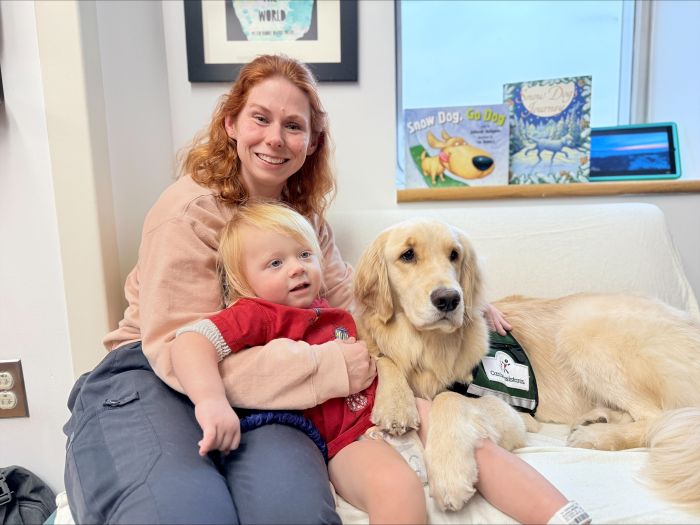After only eight personal training sessions at Inclusively Fit, Brandy of Royal Oak, Mich., has already noticed a remarkable difference in her physical ability. Through tears, she shared her life-long struggle with spinal diagnoses, surgeries, disability, and the residual effects on her life. But because of the progress she has been making, she has hope.
In 2016, Inclusively Fit was founded on the notion that individuals with special needs require physical fitness, too. Today the gym has more than 100 clients ranging from ages five to 65; certified fitness trainers provide one-on-one personal training for people with physical and cognitive disabilities, as well as those struggling with mental health.
“From individuals with Autism, a hearing impairment or ADHD diagnosis, the severity of disability ranges from low to high functioning. Everyone is welcome here – we are Inclusively Fit,” said Mark Ralko, founder, Inclusively Fit.
The gym has a variety of equipment including weight and cardio machines, free weights, an obstacle course to focus on agility, resistance bands for stretching, and more. Through buddy workouts, Inclusively Fit also focuses on life skills for clients who need it, like turn taking and social skills.
“Our client needs vary, and we tailor our approach to each individual,” Ralko said. “We try to focus on the ‘entire’ person. So, incorporated in our client workouts, we simultaneously address appropriate social behaviors if needed, set out to build confidence and self-esteem, encourage a sense of accomplishment, and even address healthy eating.”
For clients like Brandy, the adaptive fitness and exercises that accommodate her limitations have helped strengthen her core. Today, she can walk without a cane and comfortably spend time outside with her 12-year-old daughter instead of resting in bed.
“All of this affects me mentally. Just moving my body is good for my mental health and the physical progress gives me a brighter outlook on life,” Brandy said. “I look forward to seeing how much more I improve. My hope is that one day I can give my daughter the life she deserves and accomplish some personal goals.”
Unfortunately, the current healthcare and connected support systems have primarily been built for everyone except the special needs and disabled communities. Yet, these are the very groups that are at the greatest risk of obesity and the major health issues that typically accompany their conditions.
With a $20,000 grant award from The Children’s Foundation, Inclusively Fit can subsidize costs of sessions to make it possible for these populations who desperately need the training so they can thrive in life, not only for themselves but for their families.
In addition, the organization is using grant funds to expand in-home services and provide equipment to those clients who are training remotely. For many individuals with special needs, their immune systems are weakened and with a rampant pandemic, home is a safer space to achieve physical fitness.
Mary’s daughter Angela has Cerebral Palsy and is cognitively impaired and developmentally functions at 11 years old. As a result of the pandemic, the family from Sterling Heights, Mich. transitioned from sessions at the gym to in-home services. A trainer meets with Angela at the assisted living center where she lives. Angela, who uses a wheelchair, has three sessions per week and recently met a milestone when she walked with a walker.
“Angela is getting the physical support she needs and is so much happier,” Mary said. “Inclusively Fit has created a community for us, it has made such a difference in our lives and has been an incredible blessing.”
The benefits of this type of fitness center far exceed more than the physical ones. In the future, Inclusively Fit hopes to open more locations to impact a larger group of individuals to not only improve health but provide hope.
“Every day Inclusively Fit strives to provide the special needs and disabled communities with a healthy lifestyle to better both body and mind,” said Ralko. “It is through partnerships like the one we have with The Children’s Foundation that this is possible. We have a lot more work to do – and we are looking forward to it.”




